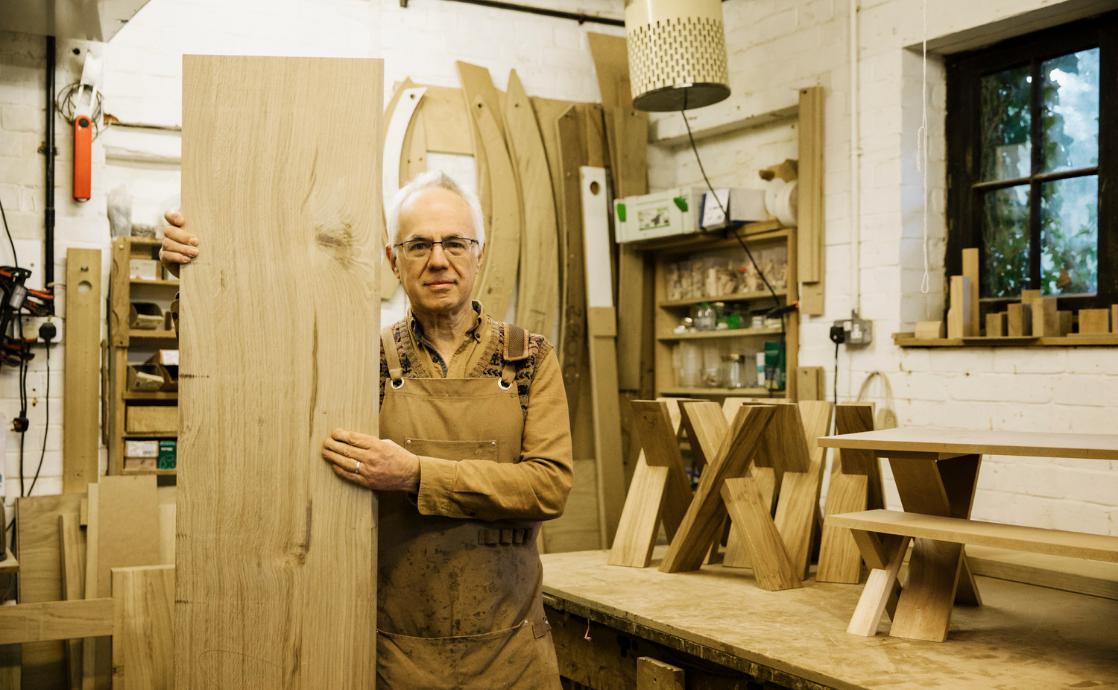The intersection of craftsmanship and spirituality serves as a fertile ground for profound exploration within the Baha’i teachings. In a world often characterized by haste and superficial pursuits, the meticulous and intentional practice of craftsmanship emerges as a transformative spiritual endeavor. This exploration delves into the nuances of craftsmanship, elucidating its role as a form of spiritual practice that fosters both individual growth and communal well-being.
Craftsmanship, often perceived as the mere manipulation of materials, transcends its utilitarian purpose when approached through a spiritual lens. This practice encompasses a broad spectrum of disciplines—from woodworking to weaving, pottery to painting—all of which invite the artisan to engage with their materials in profound ways. This tactile interaction serves not just to create, but to connect: with one’s self, with the environment, and with the transcendent.
At its core, craftsmanship as a spiritual practice invites the artisan to cultivate a mindset of mindfulness. This intentional focus on the present moment resonates deeply with Baha’i principles which emphasize the significance of individual spiritual development. When artisans immerse themselves fully in their craft, every stroke of the brush or turn of the lathe becomes an act of devotion. In this state of heightened awareness, creators often find themselves in a reflexive dialogue between their inner thoughts and the external world. This transformative process engenders a deeper understanding of the harmony between material and spirit—a core tenet of Baha’i philosophy.
The act of creating with one’s hands is not merely about the final product; it embodies a journey of self-discovery. Artisans often confront challenges that demand patience and resilience, qualities that are paramount in spiritual growth. In wrestling with imperfections, be they in the form of a misaligned joint or an unexpected crack in clay, artisans engage with the concept of detachment. Rather than viewing these obstacles as failures, they become lessons—reminders of the transient nature of existence. This shift in perspective fosters a holistic approach to life, wherein each setback paves the way for learning and evolution.
Moreover, craftsmanship as spiritual practice extends beyond the individual. It fosters community and connection, aligning with the Baha’i commitment to unity and collective advancement. When artisans share their skills and engage in communal projects, they sow the seeds of collaboration and solidarity. Workshops evolve into spaces where knowledge is exchanged, diversity is celebrated, and relationships are nurtured. The communal act of creating instills a sense of belonging that transcends the individual experience, echoing the Baha’i belief in the oneness of humanity.
Another compelling metaphor that arises when discussing craftsmanship within a spiritual context is that of a garden. Just as a garden requires careful tending—nurturing the soil, planting seeds, and patiently awaiting the blossoms—craftsmanship flourishes through the investment of time and energy. Each project is akin to a unique bloom, representing the intertwining of intention, effort, and inspiration. The process of creation becomes an exercise in faith, as artisans serve as stewards of their craft, fostering growth through patience and enduring commitment.
Furthermore, the aesthetic experience associated with craftsmanship reflects spiritual beauty. The intricacies of a handmade object—the grain of a wooden table, the curvature of a ceramic vase—serve as expressions of love and devotion. These creations are not merely functional; they embody stories, emotions, and the spiritual essence of their creators. Baha’i teachings espouse the significance of beauty, asserting that it has the power to uplift the human spirit. In this light, craftsmanship transcends practical boundaries and emerges as a conduit for divine expression, engaging the beholder in a dialogue that evokes contemplation and wonder.
In addition, the notion of craftsmanship as spiritual practice interweaves with the concept of service—a fundamental principle within Baha’i teachings. In crafting items that enhance the lives of others, artisans embark on a journey of selfless giving. This service-oriented approach embodies the idea of uplifting one’s community through the fruits of one’s labor. The act of making becomes a sacred responsibility, reinforcing the belief that every act of kindness, however small, contributes to the collective spiritual evolution of humanity.
The transcendence of craftsmanship as a spiritual practice invites participants to reflect on the interconnectedness of creation and spirituality. It posits that engaging with one’s craft can indeed lead to a profound encounter with the divine. Through the lens of craftsmanship, the routine becomes sacred, the mundane is infused with purpose, and the human experience unfolds as a richly textured tapestry of growth, challenge, and beauty.
In summary, the practice of craftsmanship within the Baha’i framework epitomizes the synergy of skill, intention, and spirituality. It offers a pathway for individuals to cultivate mindfulness, resilience, community, beauty, and service. By embracing craftsmanship as a spiritual journey, one does not merely engage in the creation of physical objects but participates in a larger narrative of personal and spiritual development. This multifaceted approach enriches the human experience, providing a deeper understanding of our collective purpose and the transformative potential inherent in each act of creation.
